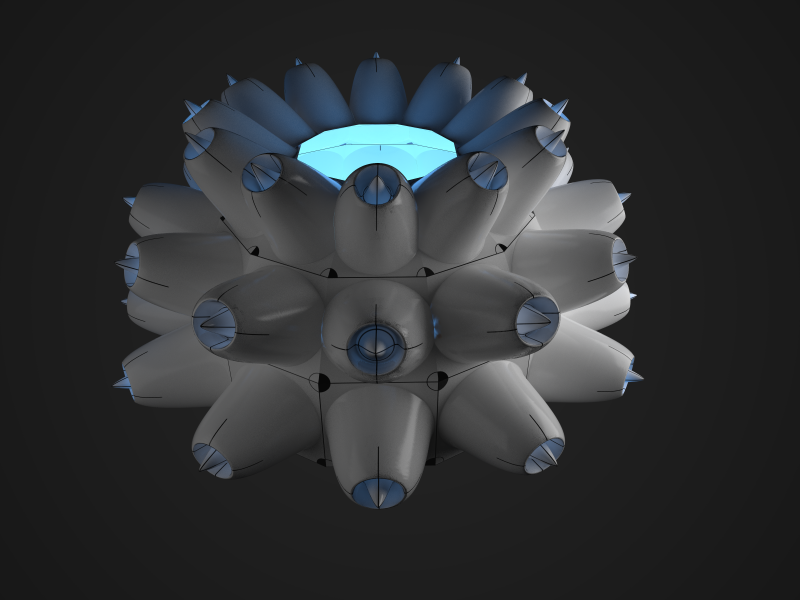Displacement Shapes
-
Another quick test.
Image made in paintshop:

Then the displacement/terrain from image:

And lastly the mesh from terraim/displacement opened in SU.

-
More 'boobies'. Tried out Two-Sided material. Though, I had expected it to be more translucent. Need to revisit this one. Other tests on plain geometry gave the results I expected, this one didn't. Wonder if it's due to the displacement.

-
I used your map again this time with Vray, and an American flag as a diffuse map.
It UV mapped it perfectly....hmmm.

-
excellent thread.
-
@solo said:
I used your map again this time with Vray, and an American flag as a diffuse map.
It UV mapped it perfectly....hmmm.

Your image seens jagged... like if there was a small displacement map applied on top of the original displacement map. Look how much more "smooth" are the "turbine" images from TomTom.
-
I believe jaggin is result of ldr displacement map.
-
Hey! That's great!
 Thom, could you tell me, how do you create displacement maps? Is it kind of software, that converts 3D object into the map?
Thom, could you tell me, how do you create displacement maps? Is it kind of software, that converts 3D object into the map?Thanks.
Coulteri -
A displacement map is just a greyscale image (the sort of thing you can make in photoshop.) You then need a program which can use the displacement map, in thom's case, vray.
-
Yes, I understand this. I just asked, if there is a method to create a displacement map from existing 3D object.... For example, if there is a ruby plugin, that is able to color the face according to its distance from zero position. Then it would be easy to export 2D raster and use it as a displacement map.
-
From Ruby it's not easy to read/write to image files. There seem to be a lack of code library to deal with the various formats.
Other 3D modelling packages have this kind of feature - though I think they mostly generate normal-maps instead of plain displacement maps. AFIK there isn't any tools like this for SU.
My experiment is pretty much the inverse of what you ask for - I just drew a grayscale shape in PS and experimented with what kind of shape it'd produce.
-
@thomthom said:
From Ruby it's not easy to read/write to image files. There seem to be a lack of code library to deal with the various formats.
I seem to remember reading it's because processing images is a relatively computationally intensive task, and ruby being relatively slow as it is isnt well suited to the task.
-
Well, that's one thing, it certainly won't be the quickest. But it doesn't has to be.
But the main issue is that file format other than the BMP format tends to be complex, especially when they compress the images. And if you don't find a good library that can read/write the formats that's supported on both platforms you have to do it yourself - learning the structure of the file format.
Speaking of this, I might see if I an make a class that handles the BMP format as it's one of the most straight forward formats out there.
Advertisement







